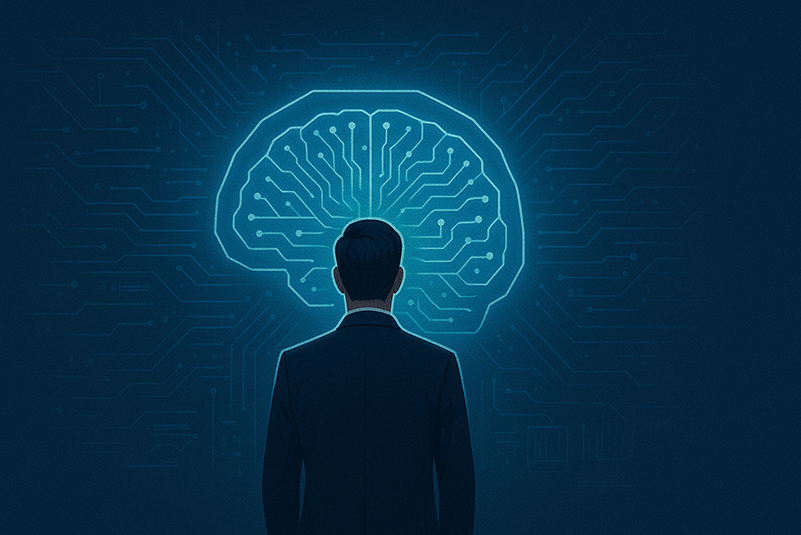Amid the sweeping wave of AI, China’s entrepreneurs are undergoing an unprecedented cognitive revolution. The latest news from the Yunqi Conference: During a closed-door seminar involving over thirty industry leaders revealed the deep-seated dilemmas of enterprise transformation: 75% of decision-makers are more concerned about missing out on AI opportunities than the cost of trial and error, while 62.5% of enterprises face obstacles to transformation caused by middle management. This think tank session, themed “Restructuring Thinking,” exposed systemic challenges at the levels of corporate strategy, organizational structure, and leadership.
At the strategic level, the traditional “moat” theory is becoming obsolete. Xiao Song, Chairman of Siemens China, using the company’s 178-year history of evolution as an example, pointed out that the leap from the telegraph to Industry 4.0 essentially involves continuously deconstructing one’s own capability structure. This global top-ten software manufacturer, through €24 billion in mergers and acquisitions, has built a digital-real integration ecosystem, confirming the survival rule of “self-disruption.” From a practical perspective, Xin Jie, CEO of LianLian Pay, proposed that AI applications need to shift from being cost centers to profit centers. The expansion path of its cross-border payment network, covering over 100 countries worldwide, is a typical case of cognitive restructuring driving resource alignment.
The data revolution in the logistics industry is even more enlightening. Zhai Xuehun, founder of G7, revealed that the real-time transportation data network formed by connecting millions of trucks has not only restructured logistics compliance models but also transformed customer trust into a dynamic data ecosystem. This shift from “defensive barriers” to “offensive links” is redefining the rules of business competition – when native data such as truck location and load status form a network, what enterprises obtain is a self-evolving data ecosystem.
The transformation of organizational structure is even more intense. Data from Liepin shows that the salary premium for AI skill-based positions has reached 30%, while demand for entry-level positions has plummeted by 50%. The transformation decision of Dai Kebin, CEO of Tongdao Liepin, is quite representative: abandoning the computing power race to focus on AI application innovation, precisely capturing the shift in corporate recruitment from “filling positions” to “restructuring capabilities.” Du Jincheng, Vice Chairman of Rootcloud, found that employee-initiated AI interest groups were far more efficient than company-specific task forces, with technical anxiety at the grassroots level and capability gaps in middle management creating a dual blockage. This situation is also prominent in the digital-intelligent transformation of physical retail.
Xian Hui from Sanjieke pointed out that the duration of corporate AI skill learning has increased 38-fold, but only 30% of companies list AI as a priority skill. This disconnect between cognition and action is particularly pronounced in the industrial manufacturing sector. Gao Fei, Vice President of Alibaba Cloud, summarized three major limitations in AI implementation: over-reliance on technology supply, intelligent upgrades remaining at single points, and data value failing to penetrate the entire chain. He emphasized that building an organizational rainforest requires the synergistic evolution of CEO determination, data resources, and talent systems. Leadership restructuring faces a deeper self-revolution. Pan Donghui, Chief Human Resources Officer of Fosun, promoted the evolution of a 110,000-person organization through an AI capability assessment system, trading organizational pain for evolutionary speed. Liu Tingjun, President of Taikang Insurance, adopted a “go out, bring in” strategy, allowing high, middle, and grassroots levels full exposure to AI, achieving single-point breakthroughs in new scenarios like elderly care. The “AI General Manager” project by Sun Jian, CEO of Home Inn, is even more groundbreaking: replicating management experience to improve human efficiency and exploring AI transformation paths in traditional scenarios.

The practice of Zhang Changhong, founder of DZH, reveals the essence of the efficiency revolution. After the AI transformation of its investment advisory business, the daily problem-handling capacity surged from 6,000 to 50,000, an eightfold efficiency increase. This shift led him to firmly believe that the challenge enterprises face in the AI era is not whether to use the technology, but how to optimize its application. These cases collectively point to the core of leadership restructuring: establishing assessment systems, forming consensus mechanisms, and building knowledge management systems.
At the level of expanding business boundaries, a new paradigm is emerging in the field of embodied intelligence. Zhang Zhizheng, Co-founder of Galaxy General, proposed a “cerebrum and cerebellum” evolution theory, using physical modeling to build simulators to solve the problem of scarce training data. Its commercialization strategy focuses on high-value scenarios, transforming technological potential into business momentum in the retail sector. Wang Qian, CEO of Ziliang, adheres to the path of general foundation models, believing that the common patterns captured through cross-task learning can enable models to demonstrate stronger generalization capabilities in specific tasks.
Regarding the commercialization process, the two leaders reached a strategic consensus. Zhang Zhizheng predicts that embodied intelligence will gradually penetrate multiple industries, while Wang Qian provided a clear timeline: achieving positive ROI on single tasks within 1 year, and completing deep scenario implementation within 3-5 years. These judgments indicate that the tipping point for human-machine symbiosis has surpassed the technological singularity, with a business ecosystem explosion imminent. Alibaba Cloud Vice President Gao Fei particularly noted that the robot coffee workshop launched by Galaxy General in Zhongguancun simultaneously overcame three major challenges: data simulation, scenario adaptation, and generalization capability.
At the conclusion of the think tank session, Liu Weiguang, Senior Vice President of Alibaba Cloud, outlined a clear path for transformation: strategy must move from closed to open, organizational transformation requires both iron resolve and patience, leaders must complete cognitive iteration, and business breakthroughs rely on faith in technology. When asked about their top priority upon returning to work, participants gave a unanimous answer: Ren Zaiwang, Chairman of Langchao Enterprise Cloud, plans a comprehensive introduction of AI, while Li Zhiguo, CEO of Wacai Network, decided to accelerate secluded AI R&D. The greatest value of this intellectual collision perhaps lies in transforming anxiety into a concrete action list.












